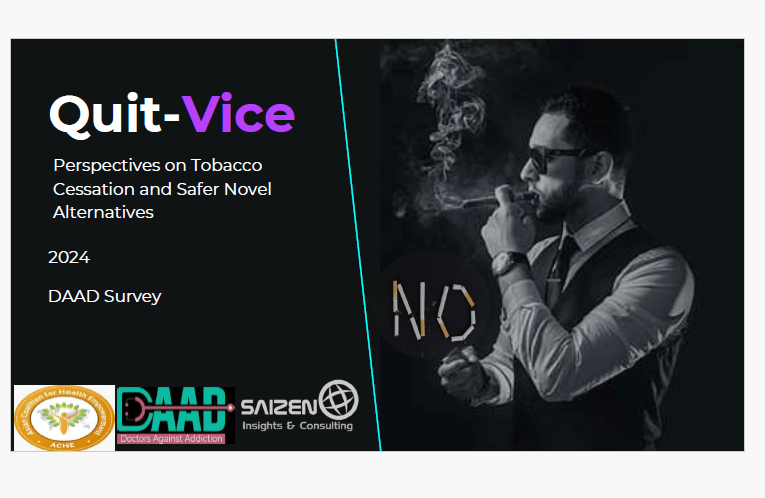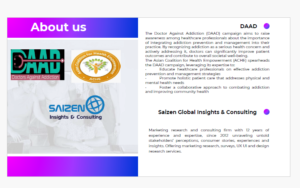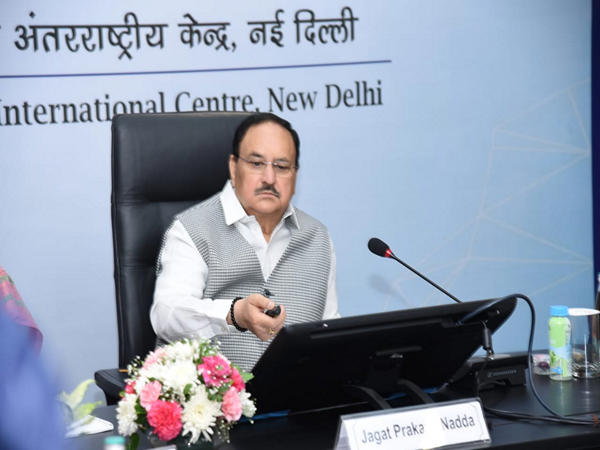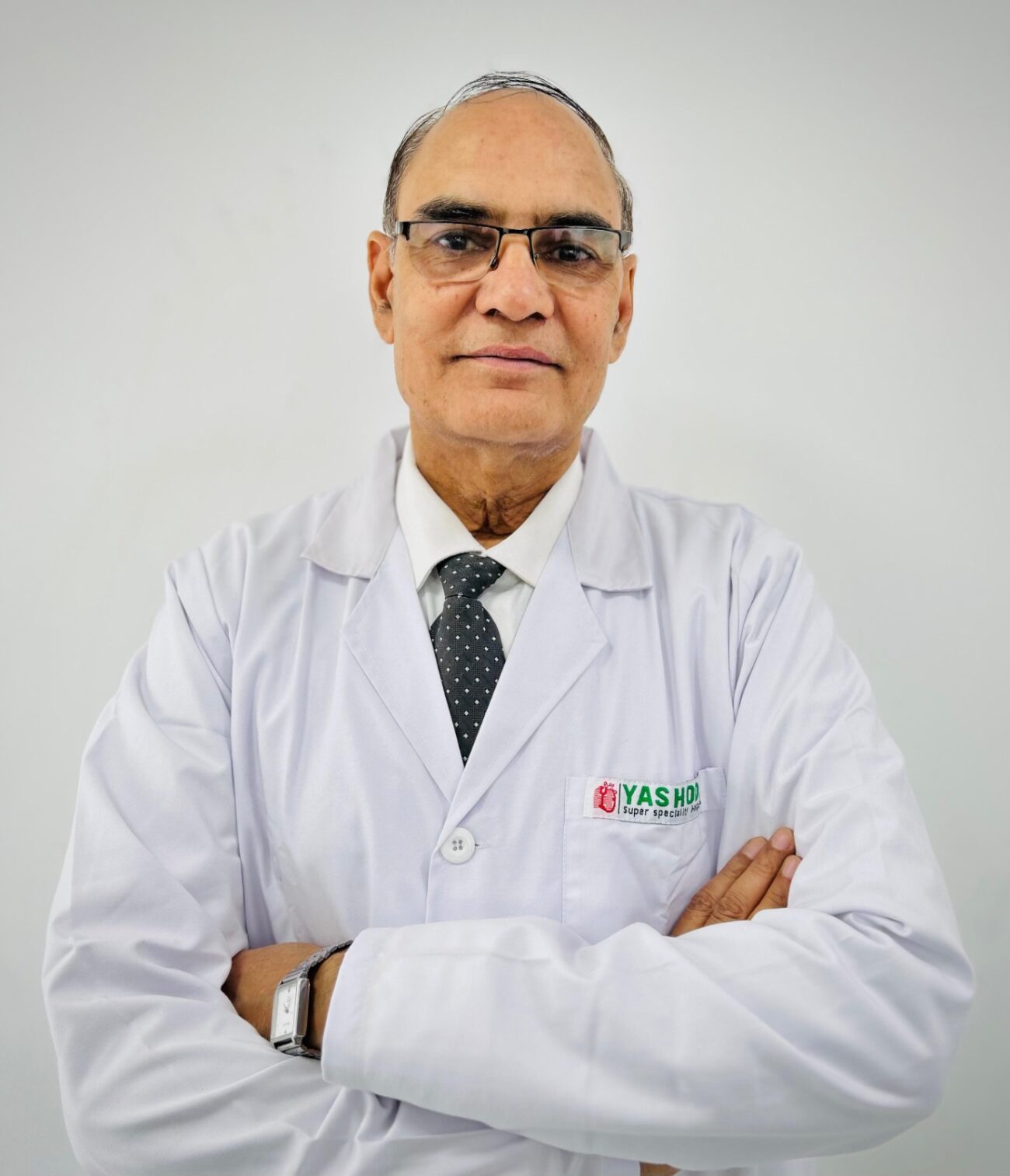65% of healthcare professionals push for safer novel tobacco alternatives to save lives: DAAD Survey
Survey highlights strong support for novel safer alternatives for smoking cessation, amidst alarming tobacco use epidemic in India Amidst India's escalating tobacco epidemic, where four out of ten households grapple with smoking addiction, new insights

Survey highlights strong support for novel safer alternatives for smoking cessation, amidst alarming tobacco use epidemic in India
Amidst India’s escalating tobacco epidemic, where four out of ten households grapple with smoking addiction, new insights from the Doctors Against Addiction (DAAD) survey done in collaboration with Saizen Global Insights & Consulting, reveal a pivotal shift in the perspectives of healthcare professionals. According to the survey, 65% of doctors support integrating safer cessation alternatives, such as nicotine replacement therapies and Heat-Not-Burn products, into smoking cessation efforts, emphasizing the need for further efficacy research of these alternatives. This finding marks a significant moment in India’s ongoing battle against tobacco addiction, which contributes to over 930,000 deaths annually—equating to more than 2,500 lives lost every day due to smoking-related diseases.
Dr Mohsin Wali, Padma Shri Awardee and Senior Consultant at Sir Ganga Ram Hospital, emphasized, “Tobacco addiction is India’s most pressing public health challenge, claiming over 930,000 lives annually. To combat this, we must prioritize scientifically permitted alternatives for tobacco cessation. The findings of the DAAD survey highlights a critical need for policy reform, increased public awareness, and the integration of modern technologies, and safer novel alternatives to support those struggling with addiction. As healthcare professionals, guiding patients toward safer options is crucial to saving lives and mitigating tobacco’s devastating impact.”
Dr Manish Sharma, Chief Coordinator of DAAD, asserts, “India’s tobacco crisis is a national emergency, requiring immediate intervention. While acknowledging the potential of innovative cessation technologies, he raised concerns over the lack of structured support for transitioning to novel safer alternatives. He called for urgent statutory recommendations of scientifically-proven cessation solutions. Referring to the DAAD survey involving 300 healthcare professionals, he highlighted the alarming ‘Quit Gap’ where over 70% of doctors cited addiction severity and low motivation, and 60% pointed to a lack of cessation resources as key barriers to quitting.”
The DAAD survey reveals that smoking cessation in India is hindered by inadequate follow-up care and poor implementation of evidence-based methods, including the 5As approach (Ask, Advise, Assess, Assist, and Arrange). Only 7.4% of healthcare providers consistently offer cessation advice, and just 56.4% arrange follow-up consultations, highlighting significant gaps.
Throwing light on the survey, Dr Pawan Gupta, Senior Consultant in Pulmonary Medicine at BLK-MAX Super Specialty Hospital, New Delhi, emphasised the importance of moving beyond traditional approaches, saying, “Tobacco addiction needs multifaceted solutions. The rise of safer novel alternatives products for cessation provides an opportunity to rethink our strategies. By integrating these cessation strategies and enhancing public knowledge about this, and around digital platforms and resources, we can drastically improve our intervention outcomes. The DAAD survey has rightly pointed to the need to relook into the existing policies and methodologies for cessation.”
Despite these challenges, the survey’s findings offer a glimmer of hope as 65% of healthcare professionals support novel safer alternative cessation products, with 90% of those familiar with these products indicating they would recommend them if proven safer.
India’s tobacco cessation policies need urgent reform, with experts calling for digital tools, public awareness campaigns, and harmonised regulations. Strengthening partnerships among government, healthcare providers, and NGOs is vital to combat the tobacco epidemic.
India, home to 40% of global tobacco users, requires urgent, collective action from policymakers, healthcare professionals and communities to combat its tobacco crisis, guided by the QuitVice-DAAD Survey roadmap.
Key Survey Findings
|







